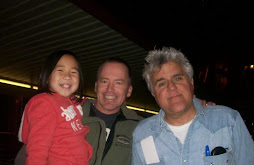Last week I posted the first four things I learned in my my first eight years of being a new church planter. I have now listed the remaining four things below.
Year five: Too much sugar isn't good for the body.
My fifth year of leading was, perhaps, the most eye opening for me. Similar to buying that first new car, it didn't take long for that new car smell to start wearing off at our church. Most people in the community now no longer viewed us as a "new" church, but - pre-owned. The new gimmicks that once worked to get people in the doors of our church was far less effective in our fifth year. The new "thang" had worn off. And even more disheartening was this: The people who had been attending our church for sometime were now searching for more substance than sugar. We now started to hear voices insisting that we were a church that was "a mile wide and an inch thick." Unfortunately, I could not argue with them. In our first five years as a church we baptized over 200 new believers - but I soon learned that this was just half the battle. I failed to think through the next important step, discipleship. After each new baptism I starting thinking, "What in the world are we going to do with "them?" The result: We had an expanding church of new believers but no growth hormone. Our church was stuck in infancy. And I was stuck in a state of confusion. The fifth year.
Year six: The definition of insanity is repeating the same thing over and over with the same results.
Have you ever watched the movie, Groundhog Day, featuring Bill Murray? In a nutshell, Bill Murray's character (who plays a weatherman) wakes up each day to the same day - nothing ever changing. Awake at 6:00 AM, everyday. Same song on the radio, everytime. Same people in the same places, all the time. The best word to describe this movie is, insanity. In my sixth year at Willowbrook I was feeling a touch of insanity coming on. Everything started to be predictable. The stage looked predictable. The message. The music. The drama. The programming. You name it. It was all so predictable. So, the only thing that I thought would shake us from this horrible bout of insanity was - a land and building campaign. We gathered our troops together and we found some land as a church. We did an all church financial campaign that was, for the most part, successful. I could feel the momentum changing. Each Sunday seemed a bit different. And different was good. We all started talking about our future together in this new location and with this new building. ONE PROBLEM: The land and building project had now become our focus, not reaching our community. In one year, we lost our overall mission. I could write a lot more about this - but the bottom line is this: We got less creative and more predictable - and the result was insanity. In our sixth year we just became another church down the road. I had failed to do a good job keeping the vision forefront during a time of important change. Year six.
Year seven: Anyone can take the helm when the sea is calm.
Have you ever questioned your own leadership? Sure. We all do from time to time. But what happens when others start questioning your leadership? I had attended a conference sometime back when John Ortberg shared these words, "There will come a time in everyone's ministry that you can only lead so far. A good leader knows when that time has arrived and helps find another leader who can take the church the next mile." Very powerful - yet humbling words. As a church planter, you are the only pastor that your church has ever known. And yet, to be fair to the church, you should probably not be the only pastor that the church should know. With each stage of the church comes new leadership challenges. And according to John Ortberg, a leader may not be "naturally" qualified to reach the next step. This is where discernment is so important. In my seventh year of leading Willowbrook I started an internal investigation, a true heart investigation, as to my leadership abilities and how it related to helping our church reach the next important steps. I started reading materials on leadership every chance I got. I attended conferences, spoke to men and women that I highly regarded as leaders, and probed as much as possible to see what it takes to lead - with courage. I was a leadership junkie. It was very time consuming. In addition, our land and building campaign had come to a stand still (lack of progress) and leadership was even of greater importance during this time. Anyone can take the helm when the sea of life is calm, but when the waves come crashing, would I have what it takes to lead a church with courage and wisdom? Year seven.
Year eight: What does it profit if a man gains the whole church, but loses his family?
Have you ever seen a crisis? Sure. They're all around us. But if you are a pastor, you are usually on the side of helping someone in their time of crisis. How it works is like this: Your pastor phone rings. You push your family away as you go into a private room in your home and you talk for hours - helping someone in their "crisis." After you hang up, you notice that your home is surprisingly quiet and that everyone has retreated and gone off to bed - not waiting up for Superman. You feel good about what you did. You helped someone in a crisis. You give yourself a gentle pat on the back. But when you role into bed, there is no pat on the back from your spouse. Instead, there is just silence. Now, you repeat this for seven years and if you're like me, you will be able to redefine what a true crisis is. I am in debt to Henry Cloud and John Townsend for some excellent materials on marriage. But most of all, I'm in debt to my wife who put up with this form of false religion for years. Here I stand, Sunday after Sunday, telling other families what steps are needed to have a dynamic home, while all along - here am I, not following the very words I speak. Year eight has been a time of refocusing, reframing, and rethinking what family is all about. In many ways, my kids now have a real dad, my wife has a true husband, and to be very honest with you, the church has a better pastor. I'm just going out on a limb right now - but I'm going to say it anyway: If you're a pastor and you're currently putting in more than 45 hours a week (and you have a family), you're not the brightest bulb on the tree. If you're a pastor and you and your spouse do not have weekly date nights, family nights, and play dates, you're really not doing your family or your "church" any good. It took me eight years to figure this out. I'm not going to lie - I'm afraid for many pastors today who glamorize their travel and speaking schedules on Facebook or Twitter. I use to live for this drug. But, I truly believe that heaven will hold the greatest reward for those dads and moms who emphasize the importance of their home ahead of their church calling. In fact, the Bible on three occassions specifically references the need for fathers to take care of their families before entertaining the thought of shepherding the flock. I can only thank Jesus that he did not allow me to shipwreck my family in the process of fixing my broken compass. Eigth year.
On a lighter note - you have to check out this great little video clip. It goes so well with my final point.
Enjoy.
skip to main |
skip to sidebar




